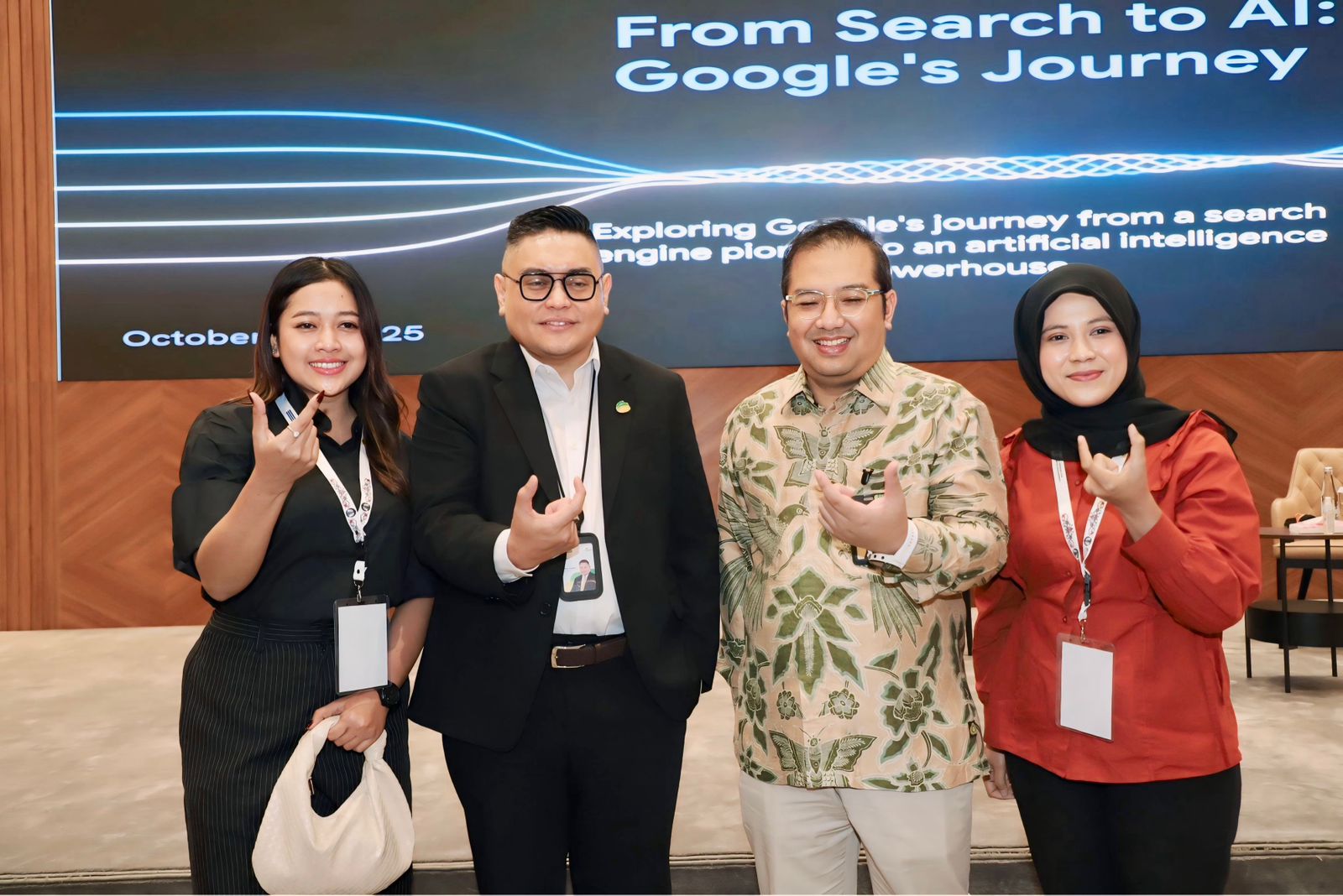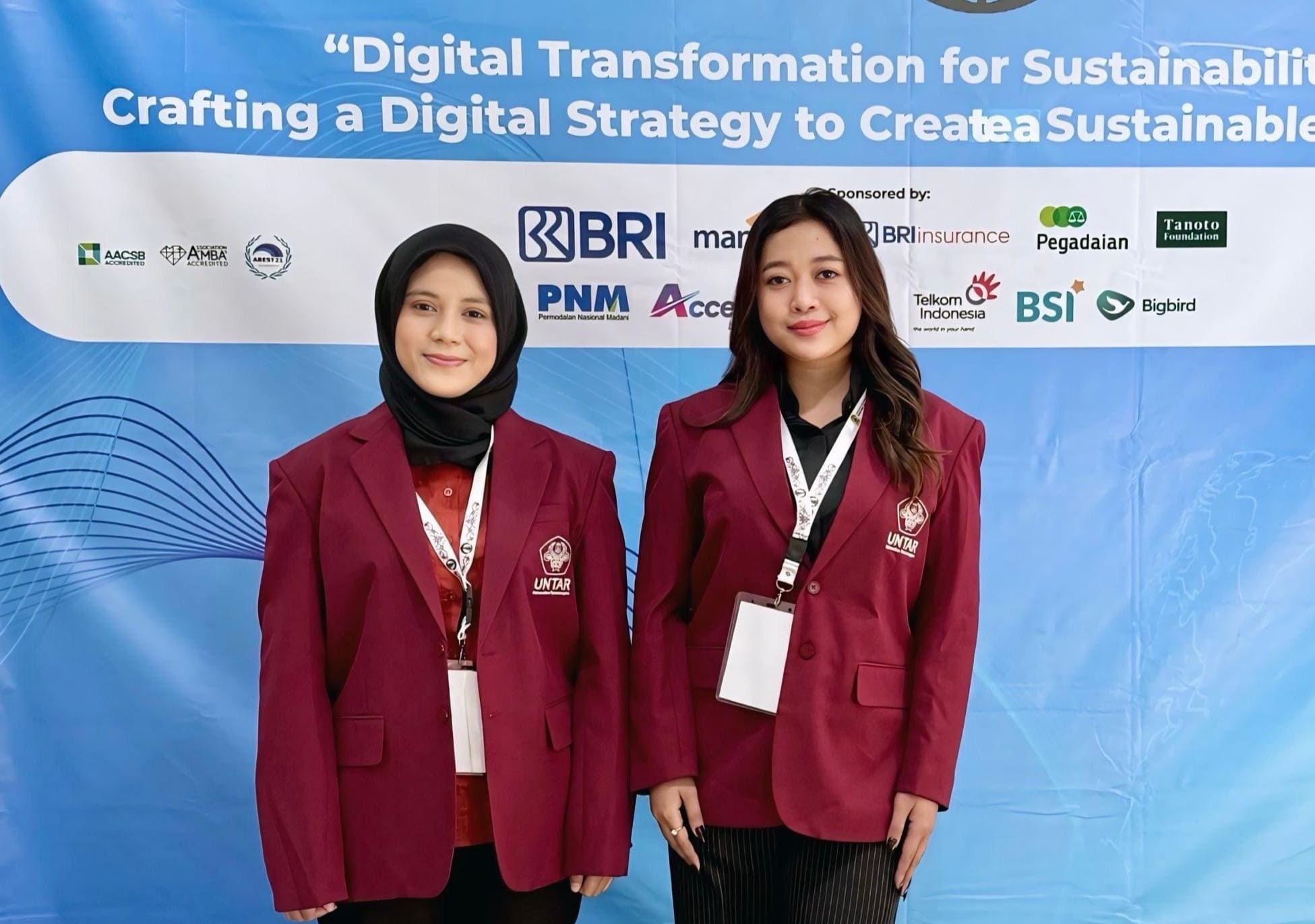Indonesia’s tourism transformation has entered a new chapter following the House of Representatives (DPR RI)’s approval of the Third Amendment to Law No. 10 of 2009 on Tourism during a plenary session on October 2. The change in regulation has drawn public attention, including from academic circles. Two students from the Master of Management (MM) Program at Universitas Tarumanagara (Untar), Eka Fitri Suryani and Ikha Amellya F. Saleh, have voiced their perspectives on the new direction of national tourism development, which now emphasizes the creation of a holistic, adaptive, and sustainable ecosystem.
According to them, tourism development should focus on strengthening human resources and preserving cultural heritage through the advancement of tourism villages and local events across various regions. “With the new regulation emphasizing a holistic tourism ecosystem and the integration of technology, how do you see the role of tourism villages and local events in supporting sustainable tourism in Indonesia?” asked Eka and Ikha to Fransiskus Xaverius Teguh, Expert Staff for Sustainable Development and Conservation at the Ministry of Tourism.
In response, Fransiskus explained that the government is currently focused on developing standardized and high-quality tourism villages. “Tourism villages in Indonesia are still in the development stage. Some have already met certain standards with more professional management and better environmental awareness,”
he stated during his presentation at Global Network Week (GNAM Week) 2025, themed “Smart & Sustainable Tourism Ecosystem,” held at the Prof. Wahjudi Prakasa Building, Faculty of Economics and Business, Universitas Indonesia, Jakarta, on Tuesday (10/14/2025).
However, he noted that many tourism villages still need capacity building, especially in management and digital literacy. Fransiskus also highlighted the importance of involving the younger local generation in managing tourism villages to foster innovation and sustainability. “Young people must be involved and equipped with reskilling and upskilling programs,” he said. “That way, they can create high-quality tourism products and promote them effectively to attract more visitors.”
Eka and Ikha agreed, emphasizing that managing human resources and empowering local communities play crucial roles in the success of events held in tourism villages. Fransiskus further reminded that maintaining the unique cultural identity of each region is essential. “We need to highlight distinctive selling points that are rooted in local culture. Innovation is key to ensuring that our tourism is not only attractive but also sustainable,” he added. Regarding the organization of local events, Fransiskus stressed that such activities should deliver economic benefits without harming the environment. “Local events are indeed effective in attracting visitors and stimulating the local economy, but they must be managed in an environmentally friendly way. Awareness of cleanliness, waste management, and the implementation of green event principles is vital,” he concluded.

As Head of the MM Program, Prof. Dr. Keni, S.E., M.M., expressed appreciation for the students’ achievement. “We are proud that MM Untar students actively participate in national strategic discussions, such as strengthening tourism villages and local events. Their involvement reflects the concern of young academics for the development of sustainable tourism. We continue to encourage students to integrate management knowledge with real-world practice so they can contribute to a smart, inclusive, innovative, and environmentally conscious tourism ecosystem,” Prof. Keni stated. He added, “We encourage students to think critically and play an active role in addressing national strategic issues, particularly those related to sustainable tourism in Indonesia. Participation in international forums like GNAM Week broadens their perspectives and demonstrates that MM Untar students are ready to compete on a global level.”
Global Network for Advanced Management (GNAM) Week 2025 is an annual program organized by the Master of Management Program, Faculty of Economics and Business, Universitas Indonesia, which is part of an international network of leading business schools. As a member of APMMI (Alliance of Indonesian Master of Management Programs), MM Untar supports initiatives from partner universities by sending its students to actively participate in the event.

